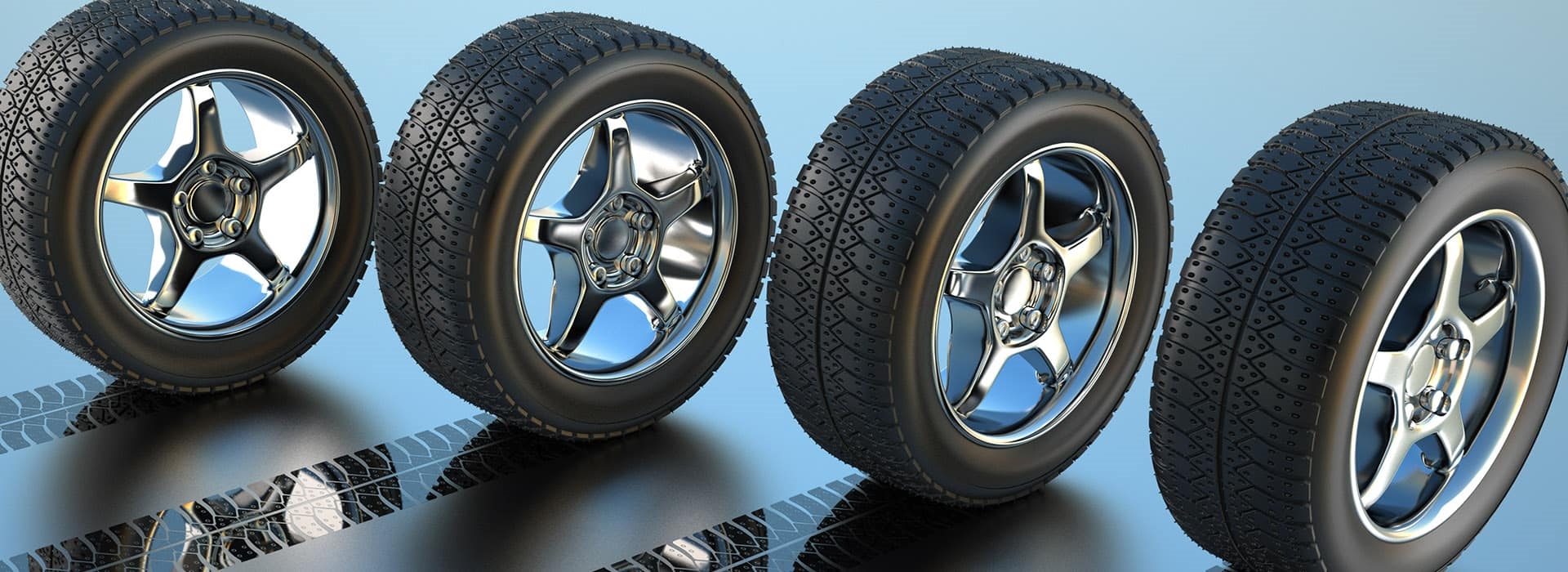Honda Tire Services at North City Honda
The expert and experienced Honda certified technicians at North City Honda are here to help you with all your tire service and maintenance needs. From when to rotate and change your Honda’s tires, to knowing the proper Honda-approved tires for your vehicle’s needs, we’re here to help you gain knowledge and confidence on the importance of regular tire maintenance.
There are several simple ways you can review your tires on your own before bringing them in, starting with regularly examining your tires once a month for any bloating, scrapes, or deflation. Doing routine tire inspections and subsequent rotations, balances, and changes will help you maintain your Honda’s driving experience, as well as help protect your safety.
At North City Honda we know the proper tires your Honda requires to maintain its high standard of safety and performance. We also offer the best quality tire rotations and wheel alignment services at competitive prices. Learn more about regular tire maintenance and its importance to get the most out of your driving experience for years to come. We’ll unpack when to change your tires, what tires are right for you, and how often tire inspection should be performed by a professional. Benefits of getting your tires serviced with us include:
- The right tires for your Honda
- Honda Certified Service Technicians
- Service and Parts Financing
- Competitive tire prices
- Expert installation by factory-trained technicians
- Honda Authorized Tire Center
Why Change and Rotate Tires
Your tires play a major role in the safety, handling and performance of your Honda vehicle. Honda-approved tires are chosen according to Honda’s exacting performance standards and are specifically matched to each Honda model. What does this mean? Solid acceleration, stable cornering, and smooth braking that can keep up with your comfort, safety, and performance needs.
Since tires wear over time, regular inspection and maintenance will help maintain your safety, and your Honda’s optimal performance. Honda authorized tires are designed to last 30,000 – 60,000 miles, depending on driving style, road and weather conditions. In the meantime, regular tire rotations every 5,000 – 7,000 miles will allow your tires to wear evenly, helping maintain both the longevity of your tires and your vehicle. However, you should always check your owner’s manual to determine the tire rotation schedule best suited for your vehicle.
Tire Wear Warning Signs
There are several common warning signs that can be felt as well as seen with ease. From decreased fuel efficiency and uneven feel, to uncommon noises and poor handling, it is vital to bring your Honda vehicle to our North City Honda Service Center the moment you start to notice any of the following signs:
- Reduced traction or less-responsive braking
- Hydroplaning in wet weather
- Noticing a rough or noisy ride
- Loss of control while cornering
- Noticeable tread loss
Honda Tire FAQs
Why choose North Cirty Honda for your tire needs?
- We are Honda Express certified
- We have a dedicated parts department
- We are a Honda Authorized Tire Center
- We offer competitive pricing and tire specials
At North City Honda, we are known for our courteous and professional technicians, full service menu, and service coupons and service specials. North City Honda also offers flexible service and parts financing and is home to an award-winning Honda Service & Repair Center.
Why is tire inflation important?
Underinflated tires are dangerous and cost you money. Due to the added resistance low tires produce, you’ll likely experience premature wear to your car and poor fuel economy.
How often do I need to check my tire pressure?
Check your tire pressure at least once a month, and remember to check the pressure when the tires are cold (before driving). Air does expand with heat and checking when tires are hot will give an erroneous reading.
Why are wheel alignments important?
Wheel alignment ensures that your tires are properly angled to each other, as well as the road. This is crucial for your vehicle’s drivability and tire life.
How can I tell if I need a wheel alignment?
If you’ve noticed your vehicle pulling to one side, poor steering responses, or unusual wear on your front tire, bring your car in immediately to see if your wheel has become misaligned.
Why does my Honda’s wheel balance matter?
Vibration in the ride is more often a sign that one or more tires need to be balanced, rather than realigned. An out-of-balance wheel can produce multiple complications with wear on shocks, bearings, and other suspension parts.
How can I tell if my Honda’s tire treads are bad?
Use a coin as a tread depth gauge; insert a penny into the tread, Lincoln’s head down. If the top of Abe’s head touches the tread face, your tires are at 2/32” depth, the minimum required by law, and it’s time for a replacement. Now try the test again with a quarter. Does the tread reach Washington’s head? If so, your tread depth is 4/32”. One more time with the penny - if the tread reaches the Lincoln memorial, your tread depth is 6/32”.
Why are tire rotations important?
No vehicle has 50/50 weight distribution from front to rear, and the inertia of braking or cornering tends to transfer weight to the front tires, wearing them more quickly. That’s why it’s important to rotate tires regularly to ensure even wear.
What are OEM parts?
OEM (Original Equipment Manufacturer) parts are specifically designed for your vehicle and come backed by a warranty.

